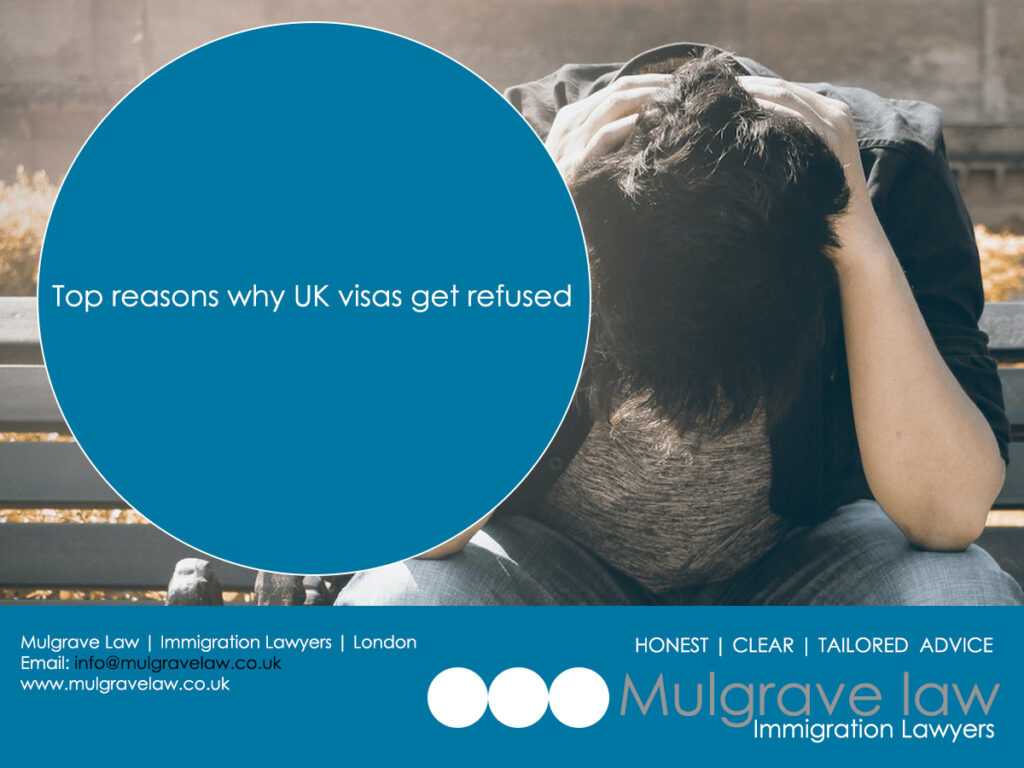Applying for a visa can be a daunting and costly process. The UK Home Office has strict requirements that must be met, and failure to meet them can result in a visa refusal. This can be upsetting, as it not only wastes time and money, but can also cause significant stress and uncertainty of people’s future.
As experienced UK immigration lawyers, we encounter some of these common mistakes on a daily basis, in this blog we highlight some of the most common mistakes to avoid.
Are you feeling unsure about the strength of your visa application and worried about the possibility of a refusal? Our team of expert immigration UK lawyers is here to provide you with peace of mind through our Visa Application and Document review service.
Simply prepare your application as you normally would, and our team will carefully review it to ensure that everything is in order. We will provide you with comprehensive guidance on how to strengthen your application further, giving you the best chance of success. Take advantage of our Visa application and document review service call 020 7253 7248 now to speak to one of our experienced immigration lawyers.
Why does the Home Office refuse visas? Here are a some of the most common reasons
- Applications failing to meet the English language requirement: One of the reasons why visa applications get refused is because applicants fail to meet the English language requirement. The UK government requires non-English speaking applicants to pass an approved English language test in order to demonstrate their ability to speak, read, write and understand English. This requirement applies to a range of visa types, including work, student, and family visas. Applicants who do not meet this requirement will not be granted a visa. For most visas, including the Skilled worker visa (General Tier 2 Visa) and British Citizenship application, a minimum score of B1 must be achieved on the English language requirement test. Our team of experts is here to guide you through this process and ensure that you meet this crucial requirement.
In some cases, however, a slightly higher score of B2 may be necessary or a lower score of A1 might be acceptable. Our experienced immigration solicitors will help you determine the level of English language proficiency required for your specific visa application and provide you with the guidance and support needed to meet or exceed these requirements.
- Incorrect documents provided: Another common reason for visa application refusals is due to incorrect documents being submitted. Applicants must provide all the necessary documents required for their visa type and these documents must meet the requirements. Failure to do so can result in a refusal. It is important that the required information is displayed clearly, is legible and in the required format. If you are concerned it’s important to seek advice of an experienced immigration lawyer.
- Following out of date advice from friends, family or the internet and even applying for the wrong visa: Many visa applicants receive advice from friends, family or online sources about how to complete their visa application and what visa to apply for. However, some of this advice may be out of date or incorrect, leading to a refusal. It is important to seek advice from a qualified immigration lawyer to ensure that you are applying for the correct visa type based on your circumstances.
- Insufficiency of evidence submitted for certain visa types such as Spouse Visa: Certain visa types, such as spouse visas, require a significant amount of evidence to be submitted. This can include proof of relationship, financial evidence, and evidence of co-habitation and/or accommodation. Failure to provide sufficient evidence can result in a refusal. It is important to seek legal advice to ensure that all necessary evidence is submitted.
- Failure to disclose previous immigration history: Application forms must be accurately completed and information regarding previous visa refusals or previous immigration history must be disclosed. Failure to do so can result in a refusal.
- Failure to disclose convictions: Applicants must disclose any previous convictions or criminal history when completing their visa application. Failure to do so can result in a refusal. It is important to disclose all relevant information, as failing to do so can result in a ban from entering the UK.
Are you located in the London, UK and looking for Best Immigration Lawyers London or Local Immigration Lawyers London providing tremendous legal services at very genuine consultation charges?
We provide Business Immigration Lawyers London or Business Immigration Solicitors London at very genuine consultation charges.
Also, contact us for Sponsorship Licence Guidance London or Sponsor licence advice London at very genuine consultation charges.
Get in touch with Mulgrave Law for UK spouse visa services at best pricing.
